A few things you
may have forgotten or never knew about the Ted Pepper.
When Ted died I'd only been in the club for 6 years but knew and met him
a few times. He was a very useful runner and of very good standard. I
knew he was running the Three Peaks on 30 April 1978, and that he was
looking forward to it. My family and I had been away for that weekend to
our static caravan. As we were driving home on the Monday (which was
the very first, First Monday, May Bank holiday) the BBC News came on
telling us that the runner that had been lost on Sunday had now been
found, sadly it was Ted. The conditions had been very bad that year and
we think Ted must have taken a wrong turn, was exhausted, so rested up,
fell asleep and eventually died of hyperthermia.
Some history on the
Three Peaks Race
After some consultation it was agreed that Club
would organise a Memorial Race in his honour, so a sub-committee was
formed and I joined up.
In those far off days the Club Committee insisted
that the event be in miles (we opted for seven miles, It was always a
bit short!) and not kísÖ ď.you only run 10k on the track.Ē
It was eventually reduced to 10k (for the 1991 and
subsequent ones) by amending the start and finish. The event (both 7m &
10k) was always run over 3-laps around the Park Langley area of
Beckenham. I took over the organisation for the next seven years and we
built the event up to become one of the most popular events in the whole
of the London and south east area; It was always self-financing having a
working budget of over £1,000, even in the '70s & 80s.
This was funded, in the main, by an eight-page
programme listing the competitors and carrying advertising which was
duly sponsored, mostly by club members. Each year it got bigger and
bigger until the final event I was involved when we had over 400
finishers, all athletes, all members of affiliated clubs - no joggers or
unattached were runners allowed...
But by that time it was getting too big for one
person, so it was time to move it on to a new team. When I did pass it
on I suggested that, due to the large numbers, we had: why not separate
races for men (3 laps), Women (2 laps), Veterans (2 laps), youngsters (1
lap). A whole day of racing, using the same course. Wasn't to be, I'm
afraid. But after 44 years, including a change of venue and terrain, it
is still going strong, albeit due to Covid-19 2020 was cancelled.
We only have full results on here from 2001, and
photos from around 2005, sorry. Right from the beginning the results
were computerised and published on the day. I'm sure I have back up
files somewhere on mini/floppy disks but no means of reading them.
Mike Peel
PS: Mike Martineau has just reminded me that it
was It was Mike Williams (the then Road Race Sec) who made the proposal
to committee to change from 7 miles to 10k and he asked MM to second
that motion which he did. Mike M says " Three of us ran it for a bit,
Steve Freemantle, Bill Clapham and myself. Canít remember the years and
for how long. Steve dropped out when he moved away leaving Bill and
myself. Then Bill dropped out and I ran it on my own until Richard Coles
took over. Andy Tucker took over from him and now Dave Beadle runs it."
An
informative message from the Hon: William Wade - 26-05-2020
Iím a
remote member of Blackheath, living in the Yorkshire Dales, but from
time to time I have a look at the B&B Club website.
Recently I found an article on the web page about the Ted Pepper
Memorial Road Race, which was established in 1979 - the year after Tedís
tragedy during the Three Peaks Fell Race. I have not forgotten that very
sad occasion in April 1978. The Three Peaks Race has been a part of my
life for nearly 60 years. I took part in most years between 1962 and
2013, and since 1996 I have been on the organising committee (I returned
to live in my home county of Yorkshire in 1983).
I donít remember exactly how it was agreed that a Blackheath team should
take part in the race that year. Alan Davis had come with me to
Ribblesdale in the mid-1970s; in 1978 it was decided to send a team
which included four other club members: Ted, Ian Young, Brian Swift and
Stuart Knowles. After the event I felt that if I had not been a regular
participant in the race the tragedy might not have happened.
On the Saturday before the race we all stayed at a cottage in Dentdale
which belonged to the family of Steve James Ė a very good northern
runner who had known Alan at university. Ian and Ted arrived quite late
on the Saturday evening having been involved with the National Road
Relay which often took place during the same weekend. In those days the
race was held on a Sunday (it became a Saturday race in 2008). It was
fortunate that the Monday following the accident was a Bank Holiday and
we had not planned to return to London until then.
Conditions in Ribblesdale in late April can vary enormously, from
heatwave to snowfall. In 1978 it was a miserable day with low cloud
shrouding the hills and accompanied by a strong cold wind with steady
drizzle. These are circumstances when even a well-clad runner can be
affected by the conditions especially when fatigued in the later stages
of the race. Much of the race is on tracks but there is a difficult
section on the summit of the final peak, Ingleborough. The summit
check-point is on a large flat stony plateau. Runners have cross this
for about 400m to reach the summit and then run back on the same route
until reaching the path which descends east (and leads onwards to the
finish at Horton-in-Ribblesdale). Runners can often make an error here
in cloudy conditions and in recent years this section has been taped
(one of my duties as a marshal since my last run in the race). Turning
off the summit too soon takes runners into a huge featureless moorland
area which is especially difficult to navigate in poor weather.
In the 1970s there were fewer fell races than now and not so well
organised. (The Fell Runners Association was not formed until 1970).
However, the race did have experienced officials and safety rules were
in place which were as good as in other similar events at that time.
Following the accident some stricter rules and safety measures were
introduced and the Three Peaks race programme continues to include a
reminder of the sad day in 1978. Since the 1970s the race has grown in
size and now has an entry limit of 1000. It is mostly flagged and taped
(and GPS is allowed). This year the race has been postponed to a date in
late September but at present there is no certainty that it can take
place then.
My running has not stopped but is now mostly limited to parkruns. Iíll
be hoping to run one when I enter the over-80 category in a yearís time
(assuming that the runs have restarted by then). The present situation
is tedious, as it must be for all of us, but we are lucky here in having
open countryside on our doorstep and shops nearby for provisions. It
must be a somewhat difficult time for the club too, with changes in HQ
getting under way. I hope that all goes well with those arrangements.
With best wishes
Bill Wade
PS. Iím not sure who will receive this message, but there may be some
members who will have memories of 40 years ago. Iím glad to know that
the ďSevenĒ (now 10K) continues, even if not this year.
And Ian
Wilson remembers... 30-05-2020
Having read the piece by Bill Wade on Ted Pepper I
remembered a bit of back ground to that tragic weekend that may not be
widely known.
I was Winter Captain that season and finishing off
the season and had selected the National 12 stage RR team, which Ted was
selected for. This was on the Saturday and the Three Peaks was the next
day. During the week Ted was saying that he might not run either as he
had a "cold". He did run, the second leg, finishing 8th on his leg,
fastest BH runner on the day, beating the likes of Ian Young, Julian
Spooner, Tim Souter, Andy Frankish and Peter Horwood! I think it was his
fastest ever time on the leg. After the relay Ted drove up north, with
Ian
Young, I think, to do the Three Peaks race the next day with other BH
members.
Pauline, Mark, Ben and me drove to stay with our
friends Richard & Ann in Worcester for the night. We returned to
Hildenborough on Sunday evening in terrible weather. The weather had
been terrible the whole weekend. We heard on the car radio on our way
home that some runners in the Three Peaks race were missing but we had
no idea who. It was not until the next day, when Ian Young phoned me at
work to tell me the sad news and what had happened. A weekend I will
never forget.
Ian
Wilson PP
The
report from the inquest in the Bradford Telegraph and Argus - 23 May
1978
Thanks to Chris Haines we now
have a few more results:
Report on the 7 May 1979 event and the
Programme
Report on the 6 May 1985 event
Some history on the
Three Peaks Race
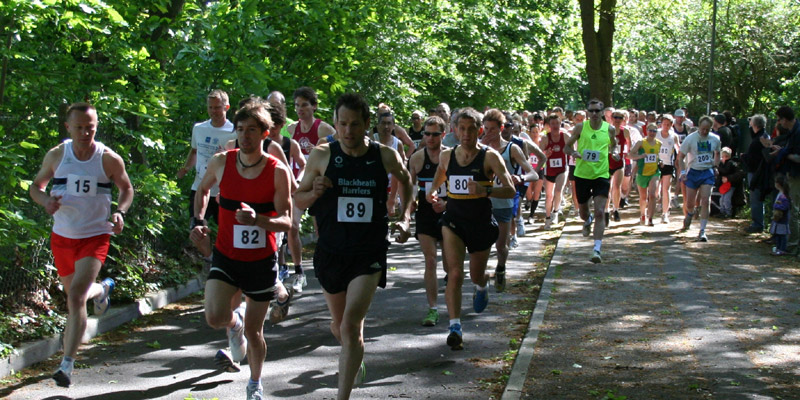
2011
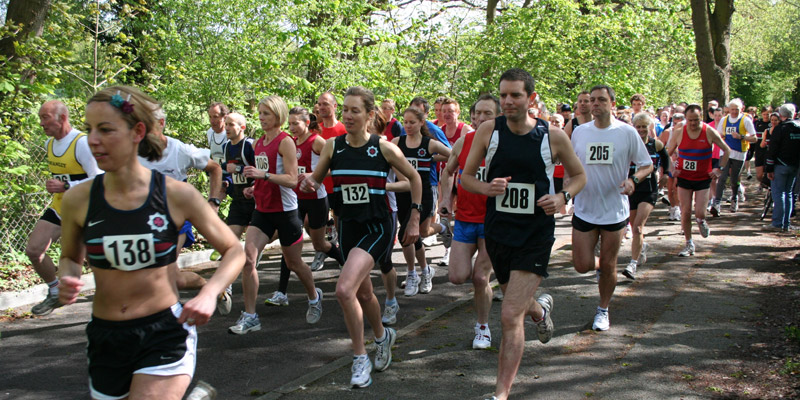
2010
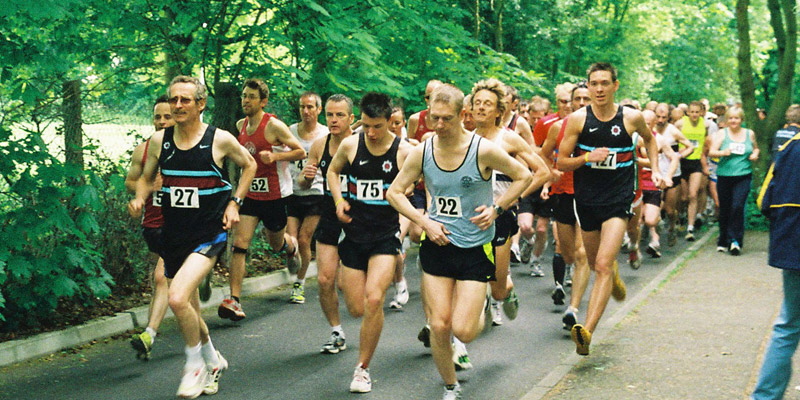
2009
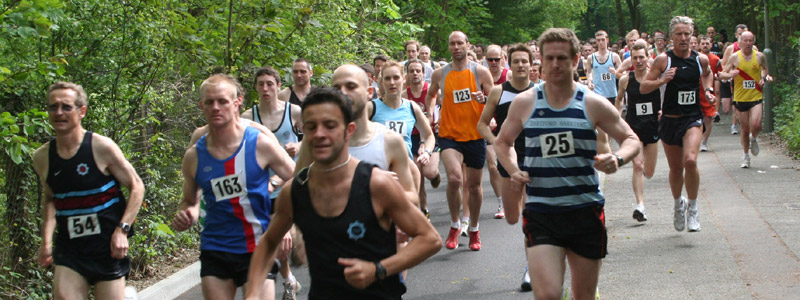
2008
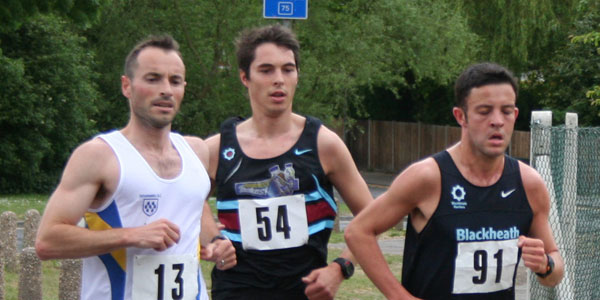
2007

2006
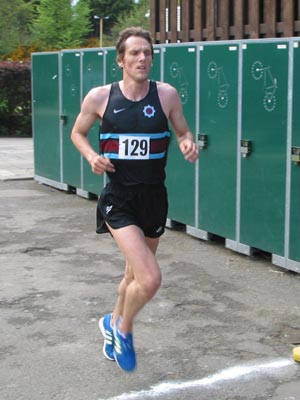
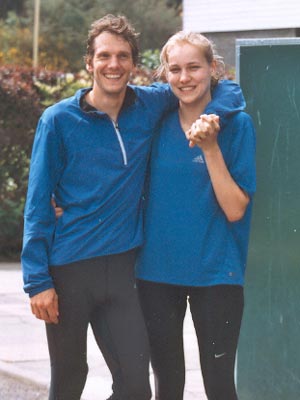
2005 - 1st Man & 1st Lady - Mark & Gemma both B&BHAC!